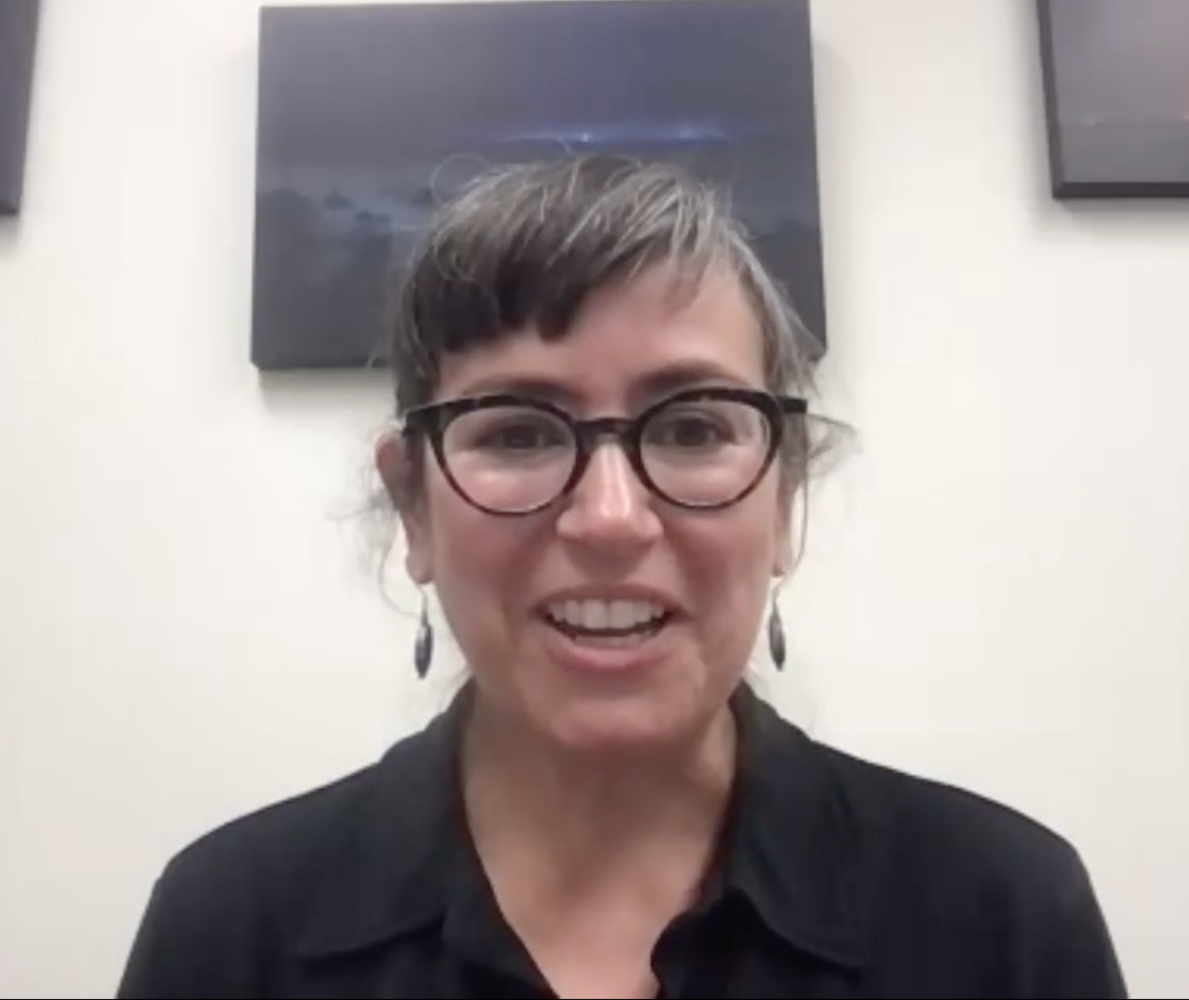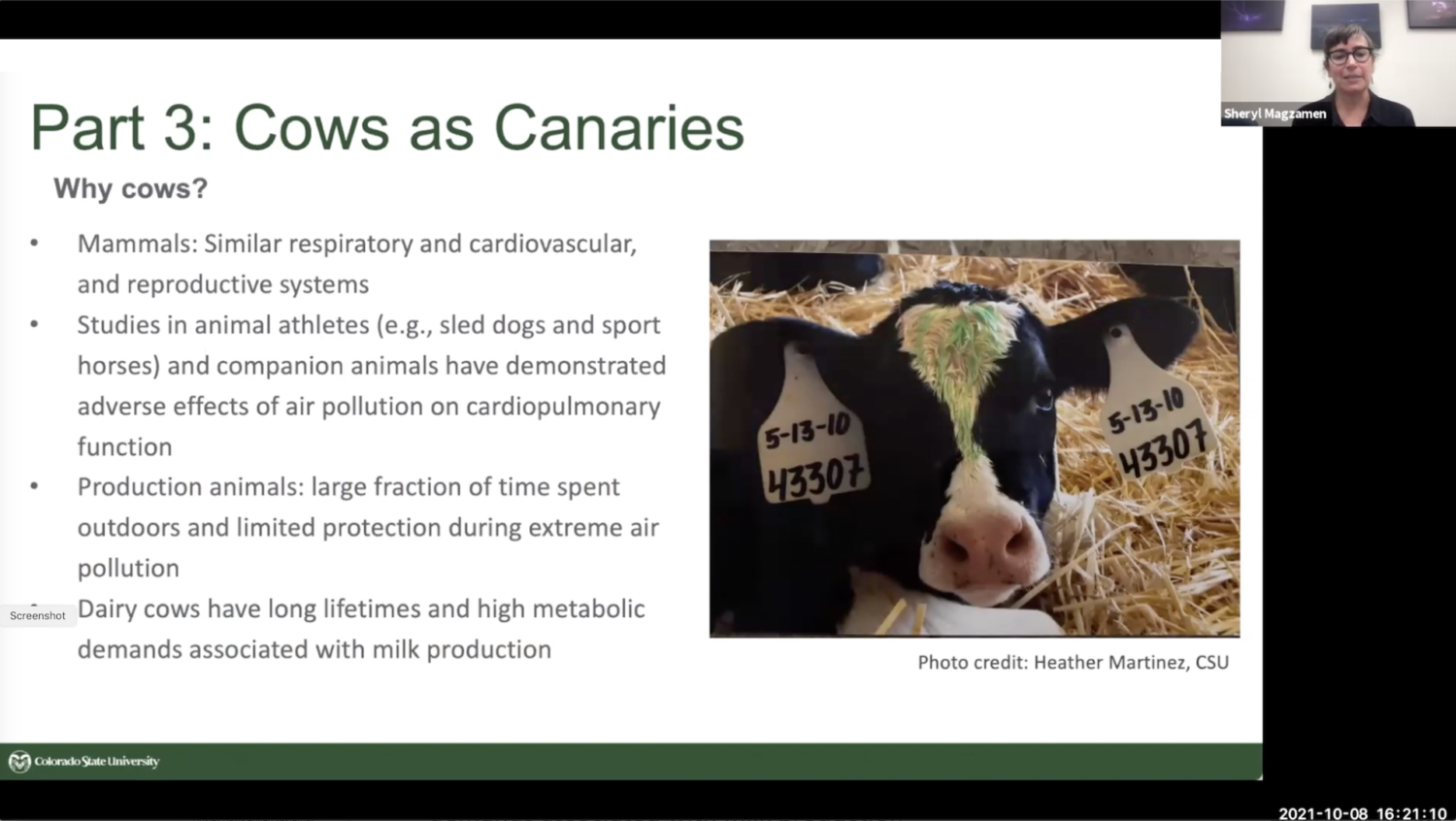
Wildfires threaten human health
Sheryl Magzamen of Colorado State University, who studies health effects of wildfire smoke, answers questions during her virtual presentation at ScienceWriters2021.
Fine particles and other pollutants from burning vegetation are a large and growing health problem in the US.
Wildfires burning in the western U.S. are sending smoke into communities far from the fires themselves, creating hazardous air for days or weeks at a time.
A lot of people are wondering: What does breathing all that smoke do to our bodies?
Speaking Oct. 6 to writers attending the ScienceWriters2021 virtual conference as part of Council for the Advancement of Science Writing’s New Horizons in Science briefings, Sheryl Magzamen said wildfires have become one of the biggest threats to human lives today. Magzamen is an associate professor in the Department of Environmental and Radiological Health Sciences at Colorado State University and an epidemiologist at the Colorado School of Public Health.
Wildfire smoke is a mix of gases and fine particulate matter from burning vegetation and materials. Wildfire smoke contains thousands of different components, Magzamen said, but one of the most prevalent is fine particulate matter measuring 2.5 micrometers across or less, known as PM2.5. PM2.5 is the pollutant of most concern from wildfire smoke because it has the ability to deeply penetrate lung tissue and even affect the heart and circulatory system.
Particle pollution may also affect the body’s ability to remove inhaled foreign materials, such as viruses and bacteria, from the lungs. But the damage may not stop there.
Environmental toxicologists have been investigating the health effects of wildfire, including effects on parts of the body that you might not expect: sperm and the brain.
The number of people now breathing wildfire smoke each summer is likely to increase as wildfire conditions worsen in a warming world, Magzamen said, and it is important to understand how wildfire smoke can harm your body and how to protect yourself.

Smoke from last year’s wildfires in California, Oregon, and Washington contributed to a significant increase in COVID-19 cases and deaths in those states, according to a study published in August by Xiaodan Zhou of the Environmental Systems Research Institute in California and others.
The Zhou study found that the wildfires exacerbated the pandemic substantially. Without the smoke from the fires, there might have been 19,742 fewer COVID-19 cases and 748 fewer deaths from COVID-19, the study found.
Magzamen’s group is looking at Colorado deaths during periods of high wildfire smoke in 2020 during the pandemic. Their preliminary data do not show the effect found by Zhou, she said. One explanation could be that the smoke and disease risk together resulted in many individuals sheltering in place. Further research is planned.
While PM2.5 emissions from traffic and industry have been reduced in recent years in the U.S., wildfire smoke has become a major source.
“Recently published research shows that, during a wildfire event, smoke can account for nearly half the particulate pollution in the U.S. West and a quarter of national levels as it blows across the country,” Magzamen said.
Magzamen added that every year wildfires destroy thousands of homes and businesses all over the United States. Combined with health effects, damage to property and life makes it important to be aware of the potential for wildfires and to always take steps to prevent a fire from spreading, Magzamen said.